We write about arthritis a fair bit around here, as many dogs begin suffering from the condition as they age. But today, we wanted to turn things around and talk about owners with arthritis.
Human arthritis can stem from a few different causes. Overuse, which wears down the cartilage in your joints, is probably the most common cause, but it can also occur in response to autoimmune conditions.
In either case, the result is the same: painful, swollen, and stiff joints which make many day-to-day tasks difficult.
Often, arthritis afflicts the hands, which can present pretty significant challenges for dog owners. If your hands hurt, it can be difficult to hook up your pet’s leash, and it can also be painful to grip the leash once the walk begins. This isn’t only inconvenient; it can be dangerous – you don’t want to drop the leash when your pet lunges after a squirrel.
We’ll try to help you cope with these challenges below as we examine some of the best leashes for owners with arthritis. Some are easier to connect to your pet’s collar or leash, others are easier to hold than most other leashes, and some help in both respects.
Best Dog Leashes for Arthritis: Quick Picks
- Zee Dog Hands-Free Leash [Most Versatile Leash for Arthritic Hands]: This all-in-one leash can be adjusted to function as a long leash, a hands-free waist leash, or an around-the-shoulder leash, so you don’t have to use your hands much at all.
- Leash Boss [Best Crowded-Area Leash for Arthritic Hands]: A super short leash with rigid, perpendicular handle and an easy-to-operate clip, which makes it perfect for those with sensitive hands living in dense urban areas.
- Tuff Mutt Hands-Free Leash [Best Two-Handled Leash for Arthritic Hands]: Another comfy dog leash you can use in hands-free fashion, the Tuff Mutt leash features a waist attachment along with two handles for better control.
Basic Options for Those with Arthritic Hands
We’ll discuss specific products in a minute, but let’s begin by looking at some of the best types of solutions and approaches for owners with arthritis.
Option 1: Slip Leads
Slip leads are simple leashes designed to be used without a collar (although your dog should still wear a collar to hold his ID tags).
Slip leads are primarily designed as training tools; they work in broadly similar fashion to a chain collar (choke chain), but they’re a little gentler, as they’re usually made from rope or some other flexible material. There’s an adjustable loop that goes around your dog’s neck at one end, and a permanent loop at the other end that serves as the handle.
We don’t recommend slip leads as often as we used to, as they are aversive tools, which can damage your relationship with your pet. However, they may be acceptable in some (rare) situations.
While slip leads are envisioned as training tools, they can also be valuable for owners with arthritis. Slip leads don’t have any snaps or clips to mess around with, so they may be ideal for owners with arthritic hands.
If you do opt for a slip lead, you must use them properly to avoid injuring your dog. You can’t allow your dog to pull while walking on a slip lead – this could damage his throat and esophagus.
Instead, slip leads should only be used for loose leash walks. They’re best suited for calm or well-trained dogs who are inclined to walk right by your side. If you find yourself constantly yanking and pulling against the leash, you will probably want to avoid slip leads for your dog’s safety.
Option 2: Hands-Free Leashes
Hands-free leashes are another great option for those with arthritis. Designed to wrap around your waist (or drape across your body diagonally), hands-free dog leashes are very popular with bikers, joggers, canicross enthusiasts, and those who enjoy urban mushing sports. They’re also helpful for keeping your dog close when your hands are full.
Hands-free leashes can be very useful for those with arthritis. With a hands-free leash, you won’t have to grip the leash handle at all – you can simply keep your pup strapped to your body.
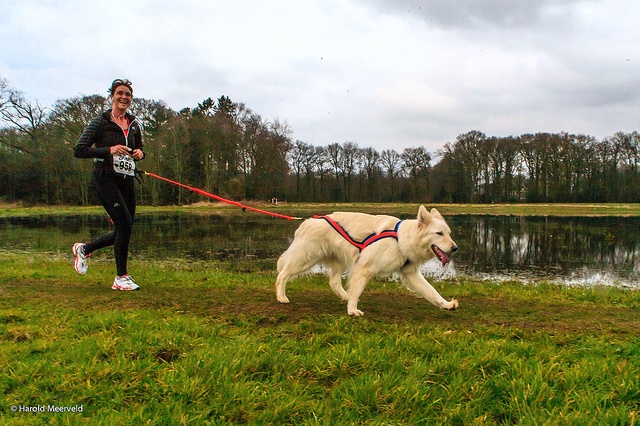
Many hands-free leashes have a number of snaps and connectors you’ll have to use, so they won’t alleviate all of the challenges arthritis sufferers experience, but they will keep your pup close and alleviate some of the wear-and-tear on your hands. Just be sure that you use caution – you don’t want your dog to pull you over if he lunges during the walk.
These types of leashes are probably best suited for those with dogs at the small end of the size spectrum, especially if you are worried about falling.
Option 3: Snap Solutions
You don’t always have to buy a new leash to make it arthritis-friendly. There are a few after-market accessories you can use with your current leash to make it easier to connect to your dog’s collar.
Most of these are designed to replace the existing snaps or connectors included with your leash.
Some of the most helpful such options include:
French-Scissor Snap
A French-scissor snap is a great replacement for the bolt-style connectors that most leashes feature. Unlike bolt connectors, which require quite a bit of thumb dexterity to operate (and aren’t easy to use with a dog excited to go outside), French-scissor snaps allow you to use several fingers at the same time to open the connector.
French-scissor snaps use a double-ended, claw-style clamp to connect to your dog’s leash ring. To open them, you simply squeeze the main part of the clamp together, which causes the clamps to open. Once you release the pressure on the connector, the clamps close and keep the leash connected to your dog’s collar.
These types of connectors offer great value for owners battling arthritis, but many owners like to switch to these types of connectors for convenience alone.
Trigger Snap
A trigger snap is like a cross between a French-scissors connector and a traditional bolt-style connector. It uses the same type of clamp closure that French-scissor snaps do, but it uses an asymmetrical design; instead of squeezing the mid-point of the clamp as you would with a French-scissor snap, these snaps use a thumb-operated “trigger.”
To open the clamp, you’ll simply press down on the trigger with your thumb. Once it is in place, you can just release the pressure and it’ll close around the collar ring. These types of connectors are often quite secure, and some people find them easier to operate than bolt- or scissor-style connectors.
Carabiner
Carabiners were originally developed for military use, but rock climbers soon began using them to keep their ropes organized, and they’ve become synonymous with rock-climbing and mountaineering ever since. However, carabiners are useful for a ton of other things, including replacing the connectors on your dog’s leash.
Carabiners feature a spring-loaded gate you can easily open with gentle thumb pressure. Once you connect it to your dog’s leash ring, it’ll close and keep the leash securely connected to your dog’s collar. Some of the best models (like the one linked above) feature “locking rings,” which have a spinning collar that slides down across the gate to prevent it from opening inadvertently.
Be sure that you select a real carabiner for your dog’s leash, rather than the relatively weak “keychain” style carabiners offered by some manufacturers. These types of carabiners are usually only rated for up to 100 pounds or so, which isn’t strong enough for big dogs. The carabiner linked above is rated to withstand 500 pounds of force and makes a better choice.
Custom Snap Attachment
If none of the alternatives above seem to fit the bill, just take a trip to your local farm supply store or hardware store. Most of these stores will have a variety of clips, snaps, and connectors from which you can choose, and you should be able to find a few different models that are easy for you to operate, yet secure enough to keep your dog safe.
Don’t hesitate to talk to the staff; they may be able to offer creative solutions. Just be sure to try out any connectors of clips you consider to make sure they’re easy for you to operate with your hands.
The 7 Best Leashes for Arthritic Hands

The following leashes should make it easier to walk your dog, no matter how much your hands cause you to struggle. Just be sure to review each item carefully and select the best model for your needs.
1. ZeeDog Hands-Free Dog Leash
This is a sponsored placement, in which an advertiser pays a fee to be featured in this article. Learn more
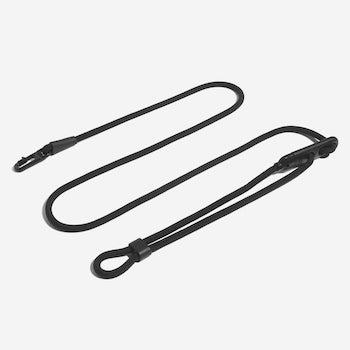
ZeeDog Hands-Free Leash
A supremely versatile leash that functions in multiple ways, including two hands-free configurations.
The ZeeDog Hands-Free Leash is a great option for owners who want a versatile, all-in-one leash that can function as a long-line, a waist-secured leash, or a leash that goes around your shoulder like a backpack.
This leash stands out due to its adjustable buckle (called the “E.zee lock adjustment buckle” by the manufacturer), which allows you to lengthen the loop or lead portion of the leash to customize as needed. The around-the-shoulder and around-the-waist mode eliminates any need for you to hold the leash with your hands, reducing stress and pain for those with arthritis.
It’s simple and sleek design will likely be alluring to any minimalist, and we love that you can switch back and forth between different setups as needed on your walk.
Sizes: One size (adjustable between 3.9 and 7.87 feet)
Pros
- Easy to customize the leash length
- Can be worn in three different configurations
- Unique E.zee lock adjustment buckle is secure and keeps the leash length from changing during use
Cons
- There’s no hand padding included
- We wish it came in multiple sizes
Hey there, pet parents! Meg here.
Remy and I got to test out the ZeeDog leash out and we’re big fans! I personally love the around-the-waist setup, which makes it a bit easier during training walks to dispense treats to Remy from our treat pouch.
I also really love that the full length of this leash is longer than normal. For some dogs, having an extra foot or two of line to sniff a bit more makes walks that much more enjoyable and reduces a dog’s need to pull.
That being said, if your dog is a big, strong canine who is constantly pulling, the waist setup may be uncomfortable, since there is no padding or cushioning involved — just the line itself.
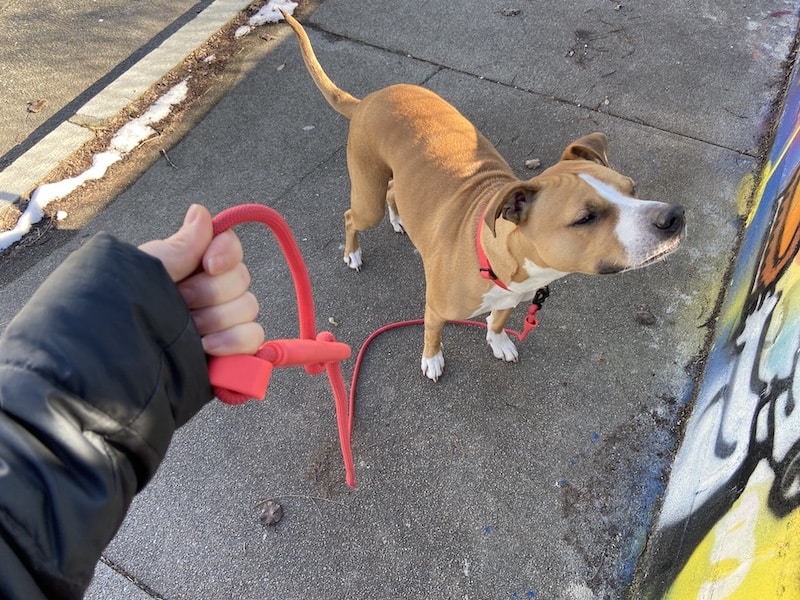
For our use, I’m a big fan. ZeeDog definitely takes the cake for having the most versatile leash I’ve seen on the market!
2. Tuff Mutt Hands-Free Dog Leash
This is a sponsored placement, in which an advertiser pays a fee to be featured in this article. Learn more
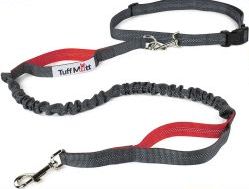
Tuff Mutt Hands-Free Dog Leash
Featuring a shock-absorbing bungee section, this multi-purpose leash can connect to your waist for hands-free use.
The Tuff Mutt Hands-Free Dog Leash is a great option for owners who have painful hands.
Unlike most conventional leashes, which will force your hands to take the brunt of your dog’s lunges and lurches, this leash will transfer most of the force to your waist.
This not only alleviates some of the wear and tear your hands would normally be forced to endure, it’ll keep your hands free for doing other things. However, two hand loops are included with the leash, which will give you more control when you need it, and elastic sections work like shock absorbers that help prevent your dog from jerking you around the park.
This leash comes in several colors, with reflective stitching for maximum visibility in dim light.
Sizes: One size (should work with any dog, collar, or harness)
Pros
- The hands-free design is great for runs and hikes, as well as owners with arthritis
- It’s a reflective leash that provides extra visibility
- The built-in handles were great for walking in crowded areas
Cons
- The waist belt isn’t padded
- Some tall owners wish that this leash was longer
3. The Leash Boss Traffic Handle
This is a sponsored placement, in which an advertiser pays a fee to be featured in this article. Learn more
The Leash Boss Traffic Handle is a short leash measuring in at just 1 foot or 1.5 feet, depending on the model chosen, and features a great handle for those with arthritic hands. It is primarily designed for use in crowded or dangerous areas (such as near cars), but the handle’s unique design means that it’ll also work well for those who have trouble gripping a traditional leash.
The Leash Boss’s handle is very rigid and will not flex or bend, making it easier for you to keep a secure grip on your pup. The handle features a solid plastic core, which is covered with soft padded foam to keep your hand comfortable during even the longest walks.
The Leash Boss uses 1-inch-wide nylon webbing, and it is made with only premium-quality components. It is available in three different colors, and it’s backed by the manufacturer’s 5-year warranty. Note that Leash Boss also makes a double-handled model for those with larger dogs.
Sizes:
- 12-inch
- 18-inch
Pros
- It’ll help keep your pup safe and close in crowded areas like city sidewalks
- The padded handle was comfortable for most pet parents
- It is also great for teaching young pups leash manners
Cons
- It’s fantastic for tight places, but it doesn’t give Rover much room to roam
- Not everyone likes the perpendicular leash handle configuration
4. VOOPET Padded Dog Leash
This is a sponsored placement, in which an advertiser pays a fee to be featured in this article. Learn more
The VOOPET Padded Dog Leash is another product that can help those with arthritis keep their dog safe.
Made from climbing rope, this leash features a padded handle. Measures about 5 feet long, this rope dog leash provides your dog with enough slack to sniff around and answer nature’s call, while stopping her from wandering very far from your side.
This leash is available in several different colors, so you can find one that’ll match your pup’s collar (as well as her sense of style).
Size:
- 5-feet
- 2-feet
Pros
- One of the most affordable leashes available
- Padded grip helps keep pet parents comfortable
- We think these leashes are quite eye-catching (and they come in several colors)
Cons
- At 5-feet-long, this leash doesn’t give your pooch a lot of room to explore
- This leash clip may not be especially easy for those with arthritis to operate
5. Friends Forever Rope Leash
This is a sponsored placement, in which an advertiser pays a fee to be featured in this article. Learn more
The Friends Forever Rope Leash is a slip-lead-style leash, which you can use without having to futz around with any snaps or connectors. Simply slip the lead over your dog’s neck, slide the leather tab into place, and head out the door.
Made from heavy-duty rock-climbing rope, the Friends Forever Rope Leash is sturdy enough for even the strongest dogs, and it is completely waterproof, so you don’t have to worry about swapping out the leash whenever it rains. It is made with reflective fibers to help ensure passing motorists can see you and your dog, no matter the conditions.
The Friends Forever Rope Leash will work with dogs of all sizes (although it may be a bit heavy for extremely small dogs), and it is available in six different color patterns.
Size:
- 6-feet
Pros
- This is a pretty affordable leash
- Pet parents found this leash durable and easy to use
- We love that it is waterproof, making it ideal for all-weather use
Cons
- This leash doesn’t have a padded grip
- If used improperly, this leash may cause choking or tracheal damage
6. PetSafe Gentle Leader Head Collar
This is a sponsored placement, in which an advertiser pays a fee to be featured in this article. Learn more
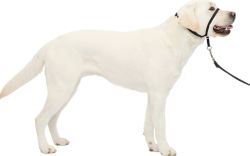
PetSafe Gentle Leader
A favorite tool of many trainers, this head halter is easy to put on your dog and makes it easier to control even strong pullers.
Head collars like the PetSafe Gentle Leader Head Collar provide two great benefits for owners with arthritis: They help prevent your dog from pulling and require less strength to direct your dog.
The PetSafe Gentle Leader is one of the best head halters on the market, and it’ll work very well with most dogs. The straps are made from high-quality nylon webbing, and padding is provided around the nose loop to ensure your dog remains comfortable during your walk.
The PetSafe Gentle Leader will work with your current leash, and it comes with an instructional DVD, which explains how to adjust the collar to achieve the best fit and how to use it with your dog. The PetSafe Gentle Leader comes in eight different attractive colors, so you should be able to find one that matches your dog’s leash.
Sizes:
- Petite: Dogs under 5 pounds
- Small: Dogs up to 25 pounds
- Medium: Dogs between 25 and 60 pounds
- Large: Dogs between 60 and 130 pounds
- Extra-Large: Dogs over 130 pounds
Pros
- Pet parents were extremely impressed with this head halter’s ability to eliminate pulling
- Easy to attach to any leash
- Great training tool that helps promote loose-leash walking
Cons
- It may take you and your dog some time to adjust to this new training tool
- You’ll still have to put in training work with your pooch to mitigate leash pulling
Note: This head halter isn’t a leash — you’ll still need to purchase a separate ergonomic leash. But this tool can be a lifesaver for those who don’t have a ton of hand strength to maneuver a strong dog.
7. Nifti SafeLatch Magnetic Dog Leash
This is a sponsored placement, in which an advertiser pays a fee to be featured in this article. Learn more
The Nifti SafeLatch Magnetic Dog Leash is another great option for owners with arthritic hands, and it is ideally suited for owners who have trouble operating traditional leash clasps.
The Nifti SafeLatch Leash features a clasp that is designed to be completely secure, to prevent dogs from coming unclipped (which can represent obvious safety issues). It features a pocket into which the safety bolt slides, and it even includes a built-in magnet to keep the latch closed when in use.
However, this design is not only quite secure, it is also very easy to operate with one hand, making it ideal for owners who have difficulty operating traditional clasps.
Aside from the clasp, the Nifti SafeLatch Leash is a pretty straightforward lead that is like most other similarly priced options. It comes in five different colors, and it features an attached D-ring that you can clip things to.
Size:
- 6-feet
Pros
- Easy to operate clasp
- Super secure design for training and walking
- Pet owners loved that the safety latch helped keep their dogs secure in a variety of situations
Cons
- No padding is included
- Magnetic components may stick to things occasionally (like metal doors, etc.)
I had the chance to try out the Nifti SafeLatch Magnetic Dog Leash with my Rottie.
Overall, we liked it. I don’t have arthritis, but I was instantly impressed with how easy the clasp was to operate — even when only using a single hand.
You will need to remember that the latch is magnetic — I found that it would actually stick to my metal front door! But that’s not really a “problem,” it’s just something to be aware of.
I’d recommend this leash for anyone with arthritis or any other type of hand issue that makes it tricky to operate conventional leash clips.
Other Tips For Walking Your Dog When You Have Arthritis
There are a few other ways you may be able to work around the challenges presented by your arthritic hands. Some of these tips and tricks will work with the products recommended above, while others may alleviate the need to purchase any new equipment at all.

Teach Your Dog to Walk on a Loose Leash
Ideally, your dog won’t be pulling on his leash for most of the walk – the leash should serve as a safety mechanism to stop her from lunging out into traffic, not a perpetually taught tether she uses to drag you around.
Most dogs won’t do this instinctively; most will be eager to lead the way on your walks. So, you must employ a bit of training to teach your pet to walk on a loose leash.
Admittedly, this isn’t always very easy to accomplish, but it is well worth the effort to do so.
Just check out our loose-leash walk instructional guide and start training!
Find Places Your Dog Can Safely Walk Unleashed
There’s no way to completely avoid the need for a leash.
Even if you live on a farm, you’ll occasionally need to take your dog into town or to the vet, where a leash will be mandatory. However, you can certainly reduce the amount of wear-and-tear on your hands by minimizing the amount of time a leash is necessary.
The best way to do this is by finding places you can safely let your dog run around untethered. Owners will differ on what constitutes a “safe” place for dogs to run free, and individual dogs will also require more or less protection than others.
Minimally, you’ll want a place that is surrounded by a fence, free of dangerous animals (potentially including other dogs), and uncluttered with dangerous obstacles.
Getting a dog-proof fence and a doggie door for your home is one great way to reduce the number of occasions you’ll need a leash.
While your dog still needs to be walked each day (and there’s always Rover and Wag if you’d rather let someone else take that task), having a fenced in yard means you won’t need to clip up your dog to a leash several times a day just for a potty trip.
Keep the Leash Attached to the Collar
In some cases, it may be easier for you to simply leave the leash connected to your dog’s collar or harness — especially if your dog’s leash or collar is easier to operate than the leash connector. When you get back home from a walk, just leave the leash connected and take off the collar or harness.
However, this will leave your dog without a collar, which will likely mean he won’t be wearing an ID tag either. This is a risky proposition – even if your dog stays inside, he may bolt out the door or slip under the backyard fence.
Accordingly, it’s a good idea to outfit your dog with a secondary collar which features an ID tag and never comes off his neck.
You may want to consider keeping a basic collar on your dog at all times, and having a harness for walks that is permanently attached to your leash.
Best Leash for Arthritic Hands FAQ
Are you having trouble picking the ideal leash that’ll keep your pooch secure while proving easy enough to operate with your hands? Here are some commonly asked questions and answers to help you find a comfortable solution.
What kind of leash is best for arthritic hands?
The best leash for arthritic hands will have adequate padding and minimize the tension you feel, like the leash options presented above. You’ll also want to select a leash that has a clip you can easily operate with your hands.
How can you make leash grip more comfortable?
You can help make a leash grip more comfortable by adding additional padding or by using shock-absorbing leash attachments to reduce tension while walking.
How do hands-free leashes work?
Hands-free leashes are affixed to your hip or worn diagonally across your body. These leashes are popular for active pet parents, but they also make a great choice for owners with arthritis.
What kind of leash is best for dogs who pull?
Using tools like the Gentle Leader (shown above) might be more helpful than a leash on its own for dogs who pull. If your dog tends to lunge, having a highly padded leash grip can help, but you’ll still want to focus on loose-leash training for a more sustainable solution.
What is the best leash for elderly owners?
Elderly owners need a leash that provides security and padding for a comfortable walk. Specialized harnesses and loose-leash training can also make for a more secure stroll.
There’s no getting around it: It can be tough to walk your dog if you have arthritis. But, if you embrace the tips discussed here and pick up one of the leashes or accessory kits mentioned above, you can make things easier. Just keep experimenting with different solutions until you find one that works.
Have you stumbled across an effective hack or product that makes it easier to walk your dog with arthritic hands? Let us know all about it in the comments below! We may even incorporate your tips into future article updates.

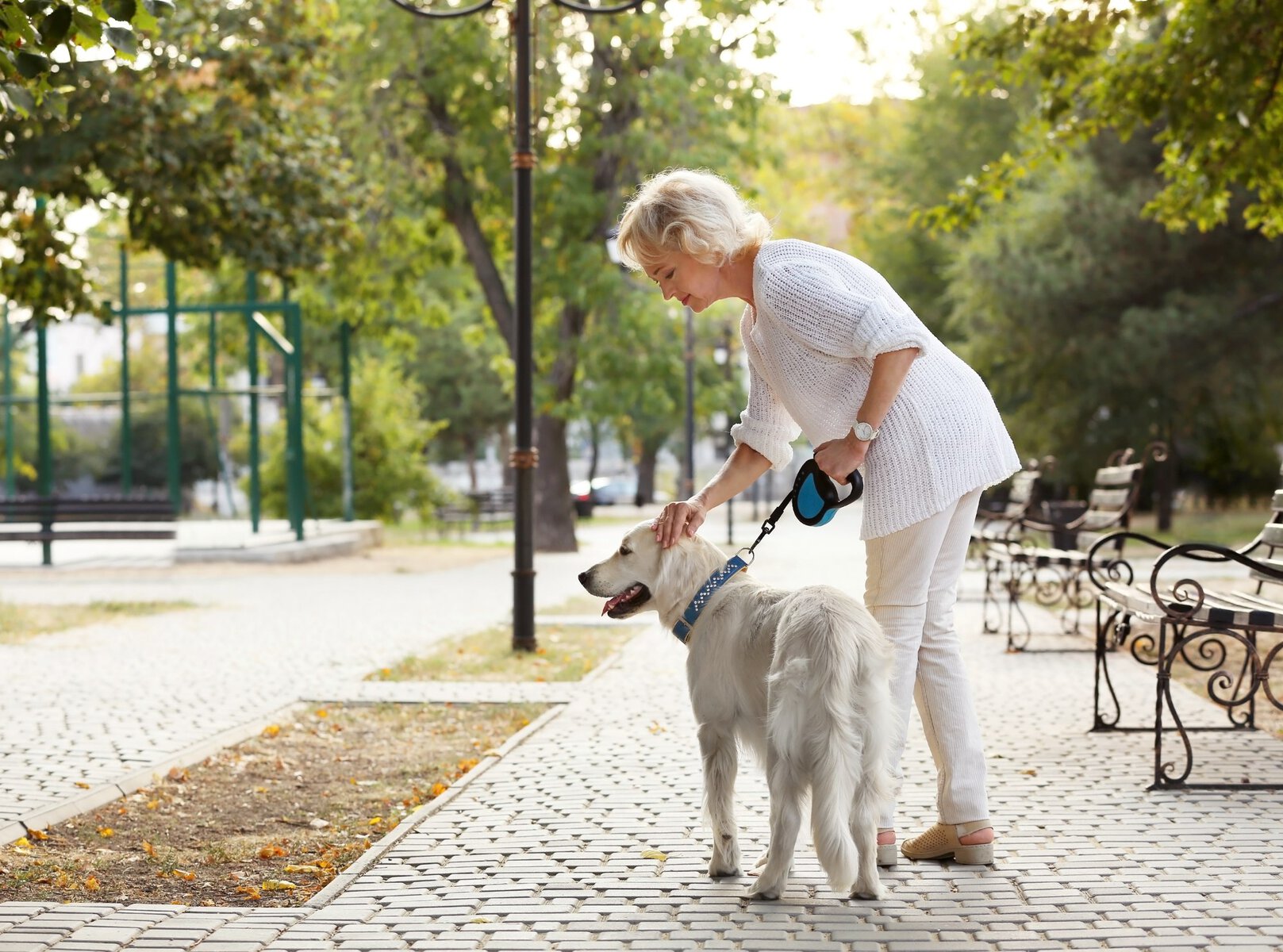

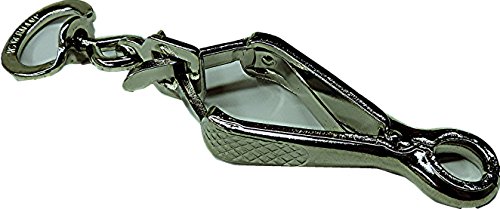
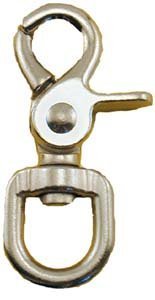

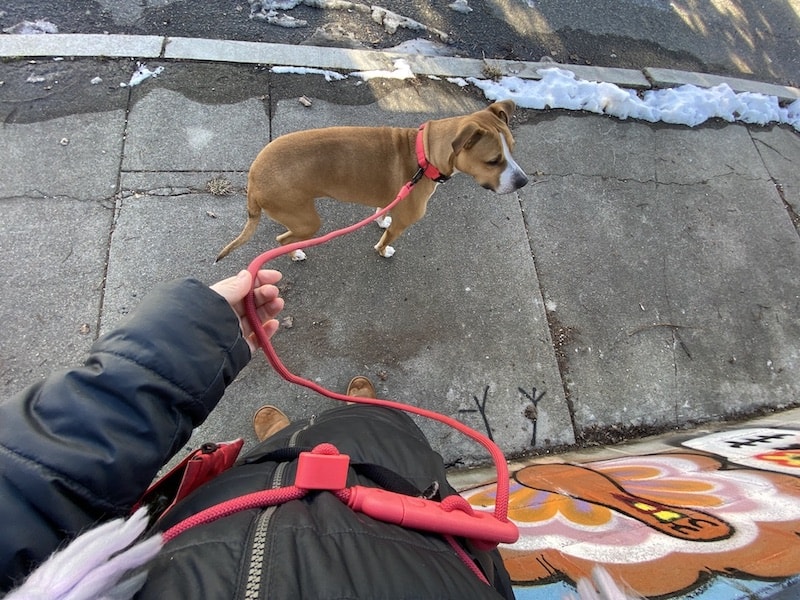





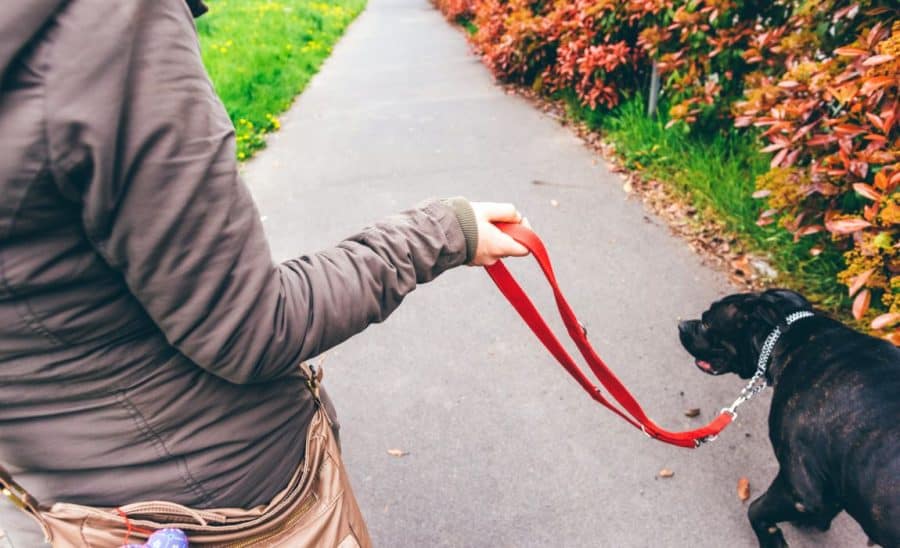



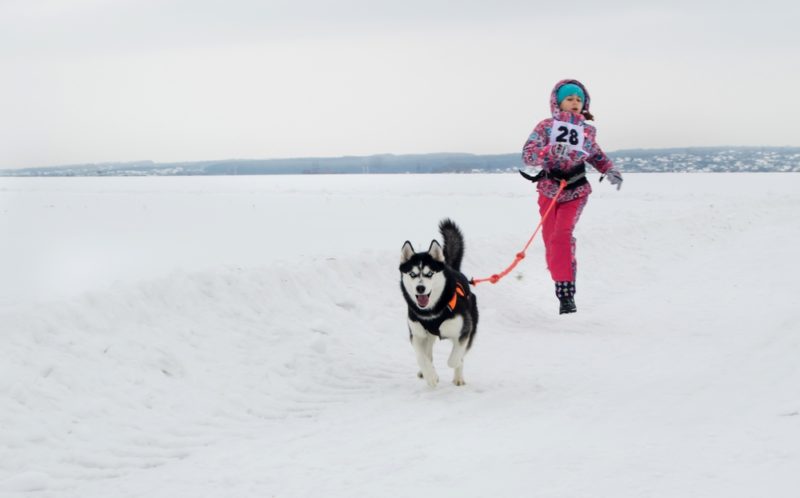

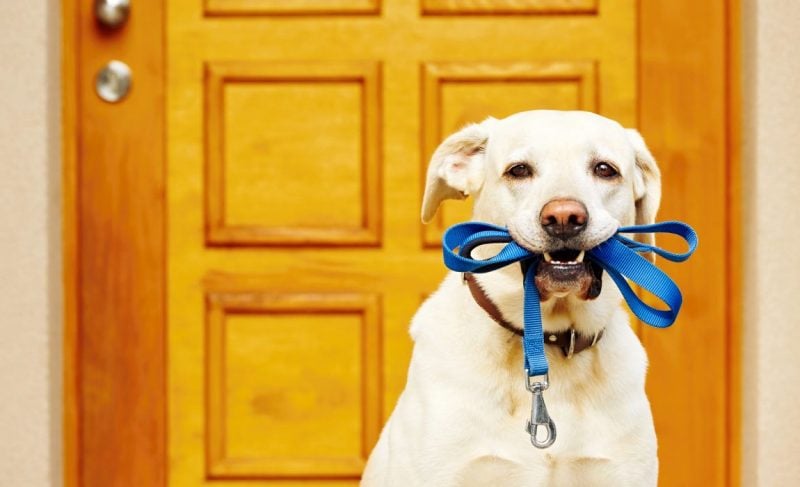


Leave a Comment